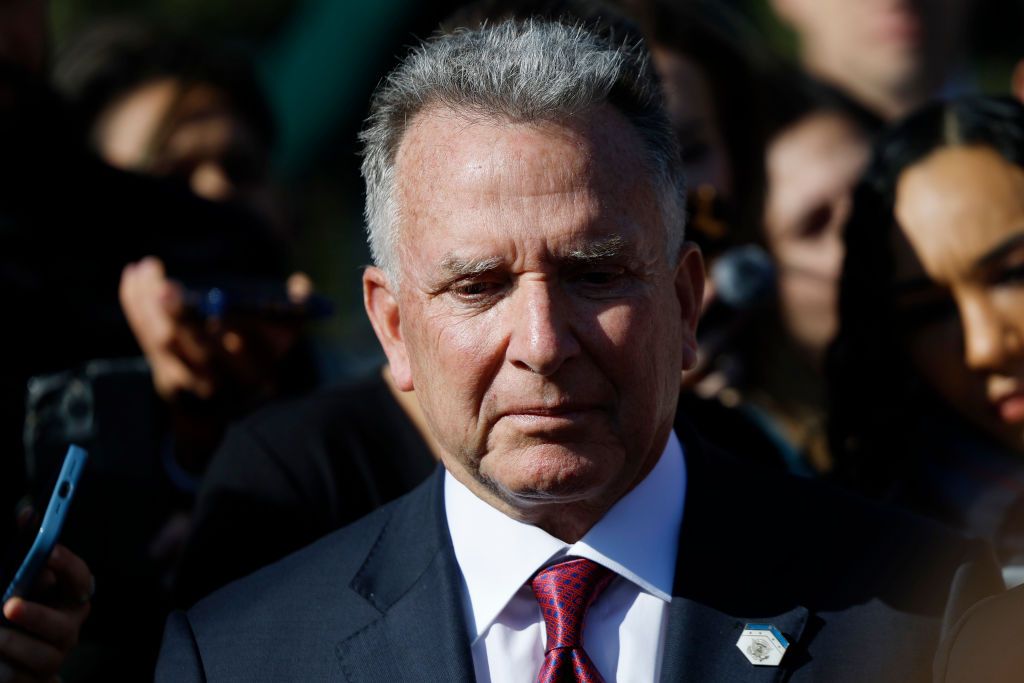Steve Witkoff: Trump’s Secret Enforcer for Peace in Ukraine
Steve Witkoff, a real estate magnate and close friend of U.S. President Donald Trump, has been entrusted with a new and highly sensitive mission: to help negotiate an end to the war between Russia and Ukraine. According to a report by the New York Times (NYT) on February 11, this secret task was assigned to Witkoff by Trump himself, expanding his role beyond his current position as the special envoy to the Middle East. The news coincided with the announcement that Witkoff had successfully negotiated the release of Marc Fogel, an American teacher imprisoned in Russia. Fogel was flown out of the country on Witkoff’s private jet, marking a significant diplomatic achievement and the first known visit by a senior U.S. official to Moscow since 2021.
Witkoff’s Unique Role in the Peace Process
Trump’s decision to appoint Witkoff to this critical role underscores his belief in the real estate tycoon’s unique diplomatic capabilities. While the White House has already appointed retired General Keith Kellogg as the special envoy for Ukraine and Russia, Trump sees Witkoff’s personal connections and diplomatic finesse as crucial assets in the ongoing peace process. Witkoff, known for his business acumen and political influence, has reportedly been in direct communication with close allies of Russian President Vladimir Putin. His outreach extends to other key players in the region, including contacts in Saudi Arabia and Qatar. U.S. National Security Adviser Mike Waltz described the deal to release Fogel as an "exchange," though the specifics of what Russia is gaining remain unclear. Waltz also noted that this deal represents a step toward ending the "brutal and terrible war in Ukraine."
The Complexity of Witkoff’s Authority
Despite the high-profile success in securing Fogel’s release, the extent of Witkoff’s authority in the Ukraine-Russia peace process remains ambiguous. The NYT’s sources indicate that Witkoff’s role is not formally defined, leaving questions about his official capacity and the weight of his negotiations. Trump has repeatedly vowed to broker a swift peace deal to end the full-scale war, now entering its third year. However, the intricacies of international diplomacy and the conflicting interests of the involved parties make it a challenging task. Kellogg, who is scheduled to visit Ukraine on February 20, is preparing several ceasefire options to present to the White House. This dual approach—Witkoff’s informal diplomacy and Kellogg’s structured negotiations—aims to maximize the chances of a breakthrough.
Trump’s Diplomatic Claims and Putin’s Silence
On February 9, Trump claimed that he had been in direct contact with Putin and had discussed ending the war in Ukraine with the Russian leader. However, neither U.S. nor Russian officials have confirmed these claims, adding a layer of uncertainty to the negotiations. Trump’s assertion reflects his desire to present a positive narrative on the international stage, but it also highlights the complexity and sensitivity of the peace process. The lack of verified communication between the leaders of the two nations underscores the delicate nature of the negotiations and the need for cautious optimism.
Shifting Dynamics in International Relations
As the U.S. steps back from its leading role in international agreements and formats, the European Union and its member states are stepping up to fill the void. The United Kingdom is set to convene the Ukraine Defense Contact Group on February 12, taking over the responsibility that the U.S. had initially assumed at the start of the all-out war. This shift in leadership reflects the broader changes in global dynamics, with European nations increasingly assuming more prominent roles in international affairs. The UK’s leadership in this group is a significant move, signaling a commitment to maintaining international support for Ukraine and ensuring the continuation of efforts to achieve a peaceful resolution.
The Road Ahead: Challenges and Hope
The ongoing negotiations and diplomatic efforts to end the war in Ukraine are fraught with challenges. The deep-seated geopolitical tensions, the humanitarian crisis, and the strategic interests of various nations all complicate the path to peace. However, the success of Witkoff in securing Fogel’s release and the continued efforts of Kellogg and other envoys offer glimmers of hope. The international community’s commitment to finding a peaceful solution, as evidenced by the UK’s leadership at the Ukraine Defense Contact Group, underscores the global concern and the collective will to end the conflict. As the negotiations progress, the world watches with cautious optimism, hoping for a breakthrough that can bring an end to the suffering and bring peace to the region.












